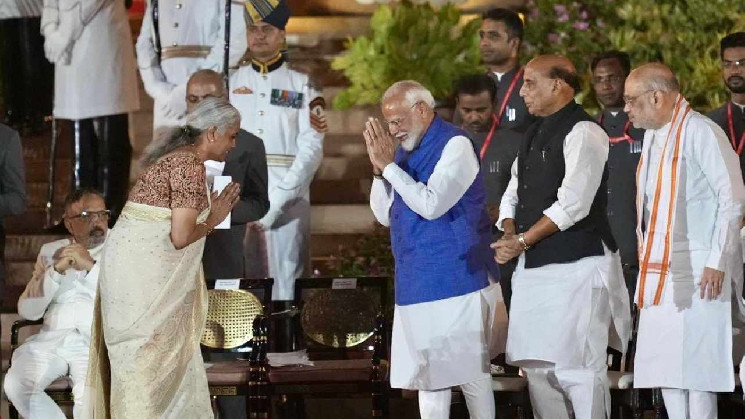Indian Prime Minister Narendra Modi has reappointed Nirmala Sitharaman as Finance Minister. She remains instrumental in shaping India’s economic policies, including cryptocurrency regulation and taxation.
Nirmala Sitharaman Reappointed as Finance Minister
Indian Prime Minister Narendra Modi has reappointed Nirmala Sitharaman as Finance Minister, extending her tenure that began in 2019. Sitharaman, who delivered her sixth budget earlier this year, has played a key role in shaping India’s economic policies and reforms.
A major concern among Indian crypto investors is taxation. Since new rules were implemented in 2022, India has imposed a 30% flat tax on income from the sale or transfer of cryptocurrencies. This includes trades and purchases. Moreover, income from earned cryptocurrencies, such as staking or airdrops, is taxed based on its fair market value at the time of receipt. In addition, there is a 1% Tax Deducted at Source (TDS) on transactions over ₹50,000 ($600). This TDS applies to all crypto transactions and is deducted at the time of the transaction.
The Indian government has not yet established a regulatory framework for cryptocurrencies but recognizes the potential risks, including their use in illegal activities like money laundering and terrorism financing.
Sitharaman has repeatedly emphasized the need for international cooperation in regulating crypto assets due to their cross-border nature and technological complexities. She has maintained a cautious stance on crypto assets, asserting that they cannot be considered legal tender in India. The Reserve Bank of India (RBI), the country’s central bank, has also voiced concerns about the financial stability risks posed by cryptocurrencies.
What are your thoughts on Prime Minister Narendra Modi reappointing Nirmala Sitharaman as India’s Finance Minister? Do you believe India will soon implement a more favorable tax regime for cryptocurrencies? Let us know in the comments section below.
Read the full article here









